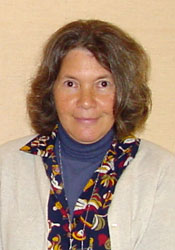[ensemblevideo contentid=5-7I5EFn5k6QZcnAWn0FmA audio=true showcaptions=true displayAnnotations=true displayattachments=true audioPreviewImage=true]
Newspapers and magazines are struggling in the 21st century. Twenty years after the launch of the World Wide Web, many influential publications of the previous century have folded. Readers have many more choices and advertisers have found new channels to reach them. Advertising revenues from traditional print publications have plunged.
For her new book Remake, Remodel: Women’s Magazines in the Digital Age, Brooke Erin Duffy interviewed over thirty industry professionals, engaged in participant observation, and paid close attention to the industry trade literature. She focused her attention on the production side, attempting to understand how the digital environment is influencing professional and organizational identities.
The routines developed around producing a glossy monthly magazine have shifted towards the urgent, ephemeral 24/7 digital cycle. The magazine is no longer an object but a brand. In addition to the traditional print magazine and its online surrogates, some magazines now have YouTube channels, TV shows, and retail products. Journalistic writing is increasingly being sidelined for prose that is more amenable to search engine optimization and advertisers. Whither the magazine from here?
I spoke to Brooke Erin Duffy about her new book Remake, Remodel: Women’s Magazines in the Digital Age on July 9, 2014.
Audio Embed Code


